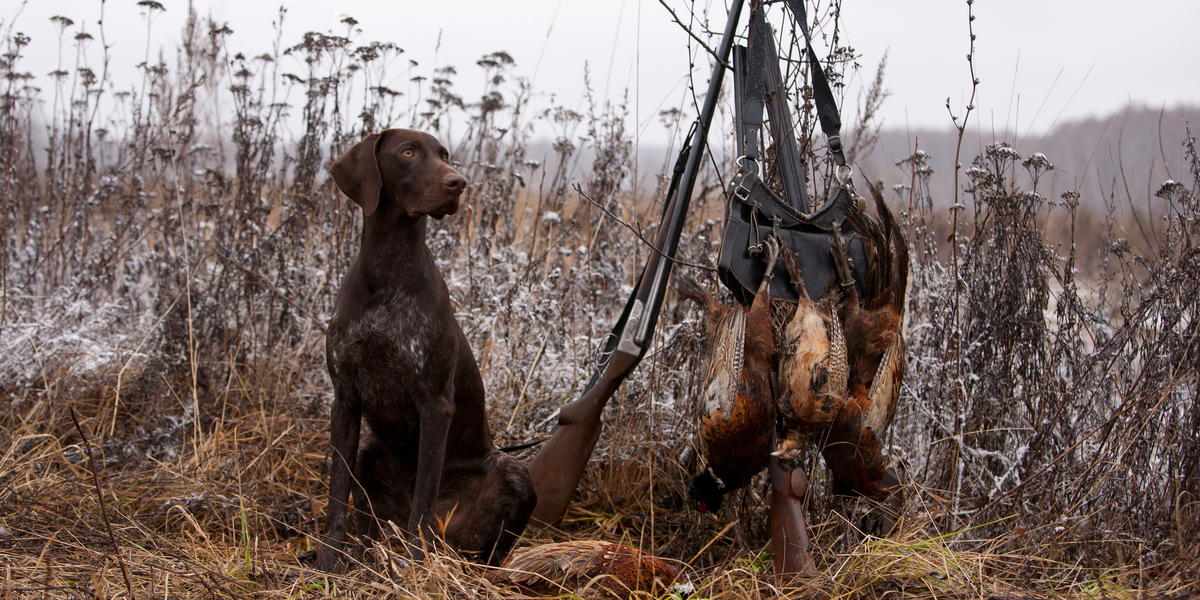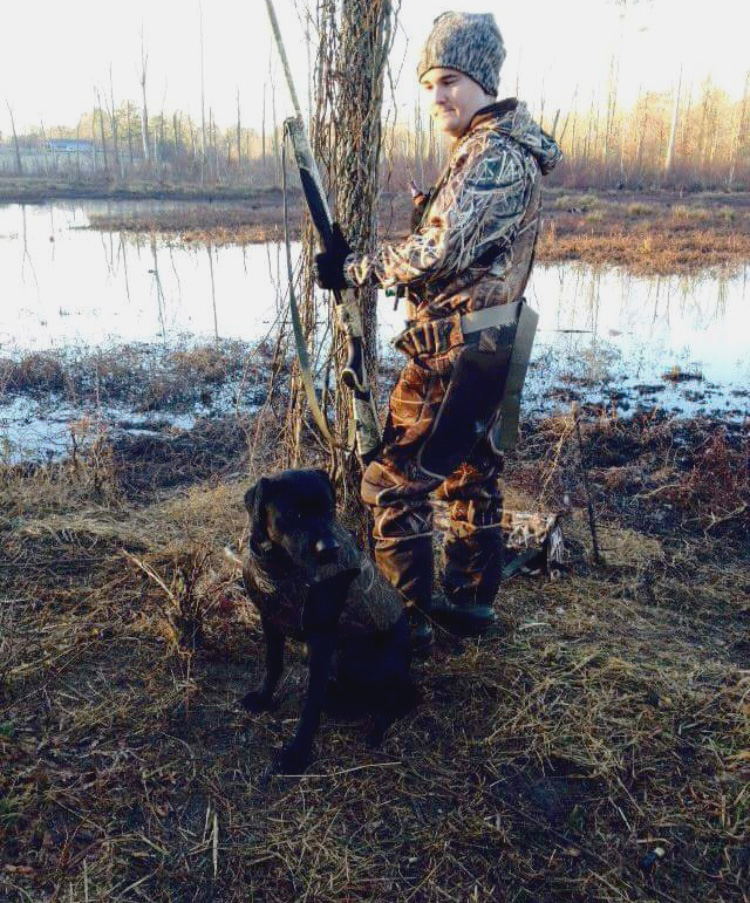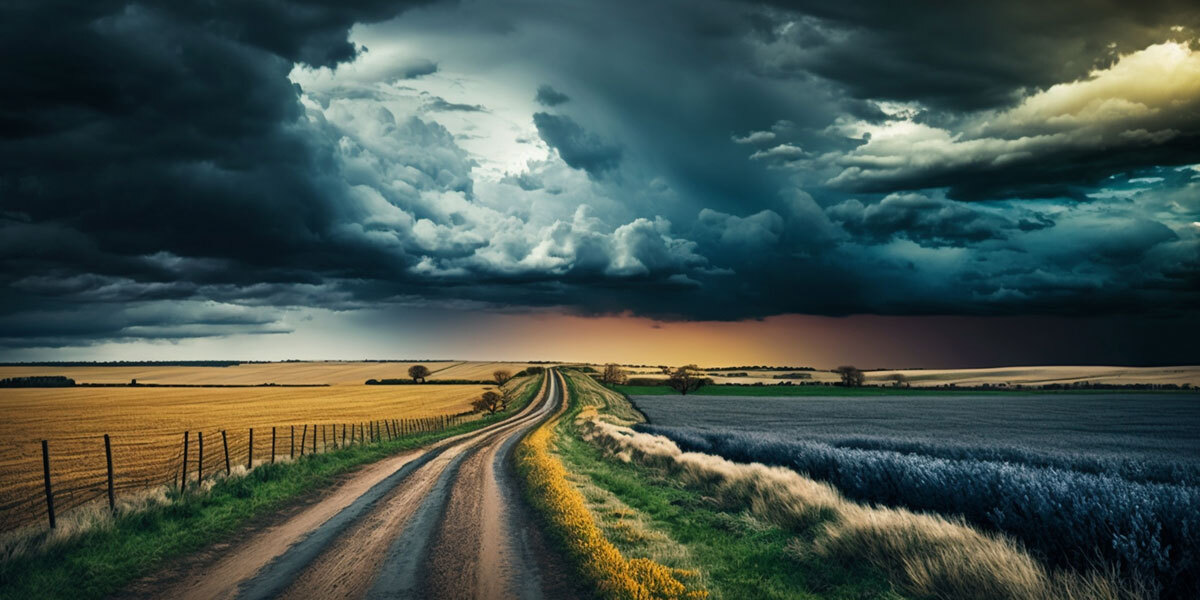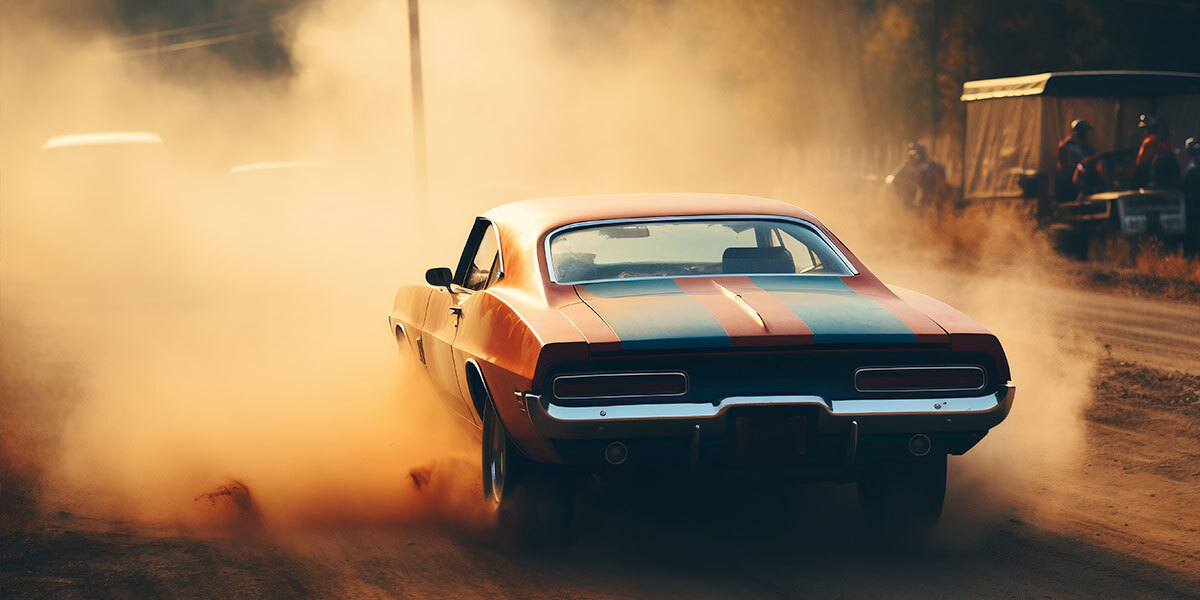

Hunting Dogs And Their People
Chad Lee and his black Labrador retriever, Echo, are more than just hunting buddies, they are best friends. Echo is never far from Lee's side unless it’s time to go hunting. Echo loves the thrill of the hunt and the chase.

“On his first dove hunt, we shot a bird that fell deep in the woods,” said Lee, who is a regional territory manager for Atlas Roofing in Birmingham, AL. “I sent Echo in, and he searched for 10 minutes before he finally gave up. But I guess he felt bad, so he brought back a dead squirrel. It turns out the bird had gotten stuck high in a tree.”
Canines in the hunting dog class, like Echo, are highly trained and excel in the water and woods. These dogs love to showcase their natural instincts to relentlessly seek and retrieve prey.
Hunting dogs (also called sporting dogs by the American Kennel Club) vary in shape, size, temperament and skill, but are mostly alert, active, likable and well rounded. Some are considered gun dogs for their ability to find and retrieve birds (retrievers, pointers and spaniels are perfect for such tasks). Some specialize in particular prey (labs are ideal for picking out waterfowl), while others have specialized senses (bloodhounds rely on an acute sense of smell). And a select few dogs have all the talents.
In addition to their hunting skills, these dogs are excellent, dedicated companions to their owners.
A Labor Of Love
For breeders like Fred Smith, with All Pro Roofing in Jacksonville, FL, hunting dogs are a family affair. The Smith family is raising treeing Walker coonhounds, a versatile breed that is known for its ability to hunt a variety of game including deer, fox, coyote and bobcat.
Every weekend, the Smiths tend to their kennel where they train their 18 hounds to run field trials for four to five hours with little rest. The trials, intended to simulate actual hunts, give the Smiths the chance to see which dogs can handle competition and test their endurance, speed and ability to withstand temperature variations.
Smith often hunts an hour from his home in St. George, GA, where, on 1,000 acres of private property, hunters release eight to nine dogs at a time for four- to five-hour practice sessions. The dogs are tracked via GPS collars so at the end of the hunt they can be easily retrieved by their owners.

The family is considering breeding their own version of the dogs, taking into consideration each dog’s background, relationship with others and DNA sequence to determine the best temperament for breeding purposes. The goal is to get the dogs to hunt in packs.
“Taking care of these dogs isn’t cheap, but it’s a necessity,” Smith said. “We love these dogs, and they love to hunt. It’s a real thrill.”
Dogs Of Many Skills
One of the best things about hunting dogs is they bring even more excitement and adventure to the hunt. Brad Baker’s 7-year-old, 85-pound black labrador retriever, Cy, is no exception.
In the past year alone, Cy, short for Thornridge’s Movin’ Like a Cyclone, has retrieved about 800 birds and been awarded several AKC titles.
One of Cy’s more impressive yet dangerous feats earned him the moniker “scuba diver extraordinaire.” The incident happened during an Arkansas hunting trip two years ago when Cy took a nosedive into frigid waters to retrieve his winged reward.
Baker, who works for ABC Supply in Nashville, said they were standing near a frozen lake when a bird was winged and dropped hundreds of yards away. Baker didn’t realize the bird had fallen into a 2-foot-wide hole in the icy lake. Cy must have picked up the bird’s scent and dove headlong into the water.
Baker soon realized Cy was in danger and began running toward the dog, getting ready to jump in the freezing water himself. As he got closer, he saw Cy swimming under the ice. Cy popped out of the water with the wounded bird in his mouth.
When Cy isn’t picking up birds, he’s spending time helping his people. Cy is often by Baker’s side at jobs. He also spends time with Baker’s wife, a recently retired schoolteacher. Cy has accompanied her to school as an incentive for the children to behave. One lucky student gets to take Cy home for the day.
Lifelong Friendships

No matter the breed of hunting dog, hunters consider their canines more than just working dogs. They are beloved members of their families.
For Lee and his dog Echo, the relationship is more than hunter and dog. They have a deep-rooted friendship. Echo is eager to please and early on excelled at retrieving ducks and doves. Echo loves to run refresher drills and hunt in the cold weather.
“If there is ice hanging off Echo’s beard,” Lee said, “you know he’s happy.”
Sporting Dogs Of All Kinds
The AKC recognizes up to 30 dogs in its sporting group, but some breeds have consistently remained popular with hunters. Such dogs are known to be versatile, family friendly and good all-around workers. Among them are:
- Retrievers – This durable breed of gun dog is strong and hearty. Types of retrievers include labrador, golden and flat coat. Many have an “otter” tail, powerful jaws and soft earflaps.
- Spaniels – Bred specifically to flush game from dense brush, spaniels are good on both the water and land. They are known for their long, silky coats and wavy, droopy ears.
- Pointers – A pointer’s natural instinct is to point by focusing its muzzle at prey and straightening its tail. They have thin coats and lean physiques, which make them well suited to warm climates.
- Brittanys – Strong and energetic, Brittanys are athletic without being clumsy. They have dense, wavy coats, floppy ears and naturally short tails.
- Weimaraners – Athletic and regal-looking, these gun dogs are descendants of royalty. Their origins can be traced back to 13th-century France and Germany. Their eye color is typically light gray or blue-gray.









 Gear!
Gear! PRO LOGIN
PRO LOGIN